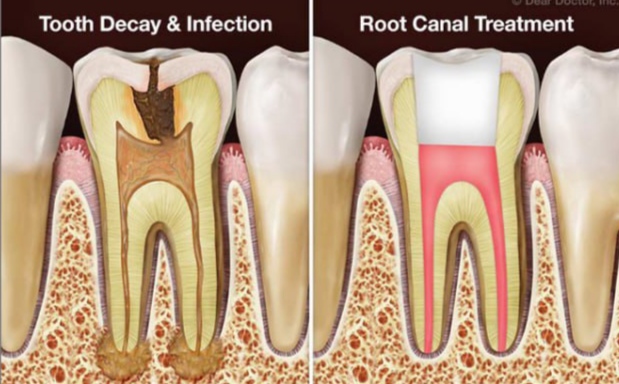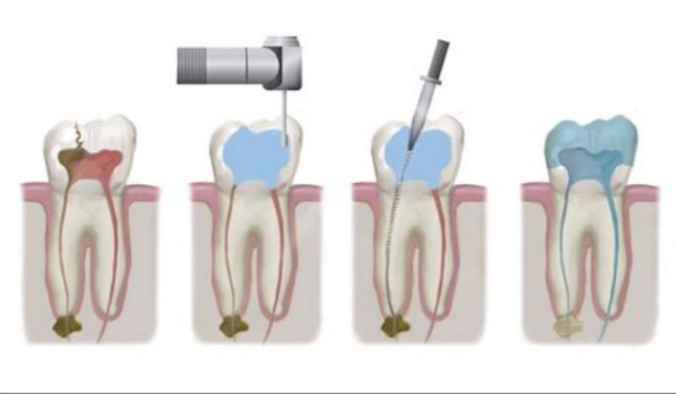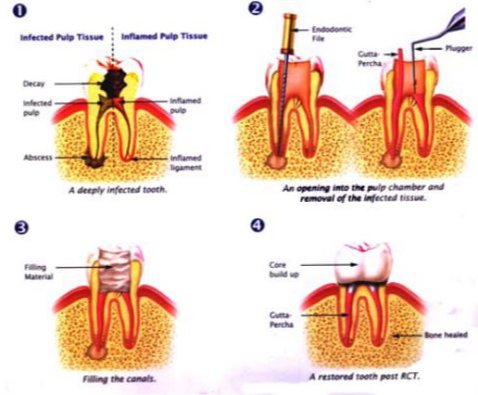Root Canal and Breast Cancer
Root Canal and Breast Cancer: What Science Really Says
- Understanding the Root Canal Procedure
- Historical Myths Linking Root Canals to Breast Cancer
- Evaluating Scientific Research on the Root Canal-Cancer Link
- Common Misconceptions and Alternative Theories
- Role of Inflammation in Cancer Development
- Are There Safer Alternatives to Root Canals?
- How Breast Cancer Actually Develops
- Evaluating Internet Claims Critically
- Can Root Canals Increase the Risk of Breast Cancer?
- What Actually Happens During a Root Canal?
- Breast Cancer Risks: What Science Says
- Historical Origins of the Root Canal Controversy
- Why Some Women Still Worry
- How Breast Cancer Actually Develops
- Inflammation: The Common Ground?
- Research Highlights: Root Canals and Systemic Health
- How to Ensure Your Root Canal is Safe
- Axillary Lumps and Their Diagnostic Pathway
- Understanding the Spread of Dental Myths
- Modern Dentistry and Systemic Health
- Do Parasites Play a Role in Cancer?
- How Breast Tissue Responds to Inflammation
- 15+ FAQ
Understanding the Root Canal Procedure

A root canal is a dental procedure performed to treat infection at the center of a tooth. It involves removing the infected pulp, cleaning and disinfecting the inside of the tooth, and then filling and sealing it. Contrary to popular fears, root canals are generally safe and effective in saving natural teeth. They are often the last resort before tooth extraction and are typically recommended by endodontists or general dentists when decay or trauma has reached the pulp of the tooth.
The goal is to eliminate bacteria from the infected root canal, prevent reinfection, and preserve the tooth’s functionality. Thanks to modern dental techniques and sterilization standards, root canals are successful in the vast majority of cases.
Historical Myths Linking Root Canals to Breast Cancer
The idea that root canals cause cancer originated in the early 20th century, particularly through the work of Dr. Weston Price. He hypothesized that bacteria trapped in treated teeth could lead to systemic diseases including breast cancer. His research, however, has been widely discredited due to poor methodology and lack of reproducibility.
Despite this, the theory gained traction among alternative health advocates and continues to circulate online. Modern medical associations, including the American Dental Association (ADA) and the American Cancer Society (ACS), emphasize that there is no scientific evidence supporting these claims.
Evaluating Scientific Research on the Root Canal-Cancer Link
Modern studies have examined the potential correlation between dental procedures and cancer risk. A large 2013 study published in the Journal of the American Medical Association (JAMA) found no increased risk of cancer among individuals who had undergone root canal therapy. In fact, some studies suggest a potential lower cancer risk in this group, possibly due to better overall dental hygiene and access to care.
The theory that root canals might leave harmful bacteria in the body is not supported by current microbiological evidence. When performed correctly, the procedure sterilizes the root canal system, making the possibility of systemic infection extremely low.
Common Misconceptions and Alternative Theories
One of the main misconceptions is that root canals “trap toxins” inside the body, which then somehow migrate to the breast tissue to cause cancer. This idea is not supported by any known biological mechanism. The lymphatic system and circulatory barriers make such direct transfer highly improbable.
Another theory suggests that chronic inflammation from dental infections may contribute to carcinogenesis. While chronic inflammation is a recognized cancer risk factor, root canals are specifically designed to remove infection, not cause it.
Moreover, breast cancer is a multifactorial disease influenced by genetics, hormones, environment, and lifestyle. Focusing on dental procedures as a major cause diverts attention from more scientifically validated risk factors.
Role of Inflammation in Cancer Development
Inflammation plays a critical role in cancer biology. Chronic inflammation can promote cell mutations, angiogenesis, and tumor progression. However, it’s important to distinguish between acute, resolved inflammation (like what occurs during successful root canal therapy) and persistent, chronic inflammation.
Root canals aim to resolve the infection that causes inflammation. Failure to treat a severely infected tooth, on the other hand, can lead to prolonged inflammation, potentially contributing to systemic problems. This makes timely dental care a part of general health maintenance.
Are There Safer Alternatives to Root Canals?

Some alternative practitioners suggest tooth extraction as a “safer” option compared to root canals. However, tooth loss brings its own risks—jawbone deterioration, altered bite, and complications with chewing. Dental implants or bridges, though viable, are costlier and carry surgical risks.
From a scientific standpoint, root canals remain one of the most predictable and low-risk options for preserving dental structure. Claims of cancer prevention through extraction lack clinical evidence.
How Breast Cancer Actually Develops
Breast cancer arises primarily from genetic mutations in breast cells, often influenced by estrogen exposure, hereditary risk (such as BRCA1/2 mutations), age, and lifestyle factors. The disease usually begins in either the ducts or lobules and may spread through lymphatic or blood systems.
There is no established pathway by which oral bacteria or dental toxins can cause genetic mutations in breast cells. Leading oncology researchers do not consider dental procedures as a risk factor in breast cancer screening or prevention guidelines.
Evaluating Internet Claims Critically
Online platforms have amplified anecdotal claims linking root canals to breast cancer. These sources often lack peer-reviewed references, use alarmist language, and cite outdated or retracted studies.
One common red flag is invoking conspiracy theories against mainstream medicine or the ADA. Readers should seek information from vetted institutions like the National Institutes of Health (NIH), Centers for Disease Control and Prevention (CDC), and leading academic journals.
Can Root Canals Increase the Risk of Breast Cancer?
This question has stirred debate for decades. Root canal therapy is a dental procedure used to save a tooth that has been badly decayed or infected. The concern about a potential link with breast cancer stems primarily from alternative health circles, which suggest that bacteria trapped inside the tooth could cause systemic inflammation or even release toxins into the bloodstream. However, the American Association of Endodontists and multiple peer-reviewed studies emphasize that there is no scientific evidence directly connecting root canals to breast cancer.
What Actually Happens During a Root Canal?
To understand the debate, it’s helpful to know how a root canal works. During this procedure, the dentist or endodontist removes the infected pulp from inside the tooth, cleans and disinfects the canals, and seals them. The goal is to preserve the natural tooth while eliminating infection. The notion that bacteria remain trapped is based on outdated assumptions and does not align with modern sterilization protocols.
Breast Cancer Risks: What Science Says
The major risk factors for breast cancer include age, family history, certain genetic mutations (like BRCA1 and BRCA2), hormone exposure, and lifestyle choices. Dental procedures, including root canals, are not recognized in medical literature as contributing factors. A comprehensive review published in “Cancer Epidemiology” did not find any statistically significant link between dental work and breast cancer.
Historical Origins of the Root Canal Controversy
The theory linking root canals to cancer originated from Dr. Weston A. Price in the early 20th century. His research, although groundbreaking for its time, has been widely criticized for methodological flaws. Despite this, some alternative medicine proponents continue to cite his work today. However, modern science and dentistry have repeatedly discredited the idea that root canals are inherently harmful.
Why Some Women Still Worry
Many women discover anecdotal claims online that individuals who had root canals developed breast cancer on the same side of the body as their treated tooth. While emotionally compelling, these correlations do not prove causation. Breast cancer is a complex disease with multifactorial origins, and such patterns are more likely coincidental than causative.
How Breast Cancer Actually Develops
Breast cancer begins when cells in the breast start to grow uncontrollably. These cells usually form a tumor that can be seen on an x-ray or felt as a lump. The development of this cancer has far more to do with genetic mutations, hormonal influences, and environmental exposures than any dental treatment. For an in-depth look at underlying risk factors, refer to the related article on Castor Oil Help with Breast Cancer.
Inflammation: The Common Ground?
One legitimate discussion point is the role of chronic inflammation in cancer development. It’s true that persistent inflammation can create an environment conducive to cancer cell growth. However, a properly performed root canal is designed to eliminate inflammation, not cause it. Poor dental hygiene or untreated oral infections pose a greater inflammatory risk than the root canal procedure itself.
Research Highlights: Root Canals and Systemic Health
Numerous studies have examined systemic health after endodontic treatments. A large cohort study conducted at the University of Michigan found no increased cancer incidence among individuals who had undergone root canals. These results align with those from other institutions, confirming that the treatment is generally safe when performed correctly.
How to Ensure Your Root Canal is Safe
For those concerned about systemic impacts, it’s essential to choose a qualified endodontist who follows modern sterilization and imaging protocols. Digital x-rays, ultrasonic cleaning tools, and biocompatible sealants have drastically improved the safety and success rate of this procedure. If a second opinion is desired, it’s always acceptable to consult another dental professional.
Axillary Lumps and Their Diagnostic Pathway
If you’ve had a root canal and notice a lump near your underarm or chest area, don’t panic. Axillary lumps can result from a variety of causes, including infections, benign cysts, or lymph node activity. However, given the sensitivity of the area, it is crucial to seek medical evaluation.
Understanding the Spread of Dental Myths
Misinformation can persist for decades, especially in health-related fields where fear and uncertainty are common. The root canal-breast cancer theory is a prime example. Despite no concrete scientific foundation, it thrives in online forums and alternative health spaces. This highlights the importance of consulting peer-reviewed research and qualified professionals rather than relying on anecdotal sources.
Modern Dentistry and Systemic Health

Today’s dental practices incorporate advanced sterilization techniques, digital imaging, and biocompatible materials, all of which dramatically reduce the risk of any post-treatment complications. Root canals are among the most thoroughly studied procedures in dentistry. Moreover, current research focuses on ensuring systemic safety and minimizing bacterial spread. Dentistry and medicine now work in close collaboration to monitor oral-systemic links, but no evidence implicates root canals in carcinogenesis.
Do Parasites Play a Role in Cancer?
Another claim often bundled with root canal theories is that parasites or hidden infections contribute to breast cancer. While some research has explored microbial influence in cancer development, there is currently no solid scientific link connecting parasites to breast cancer. Theories suggesting that parasitic infestations from dental infections cause malignancies remain speculative.
How Breast Tissue Responds to Inflammation

Inflammatory responses in breast tissue can be triggered by infections, trauma, or immune reactions. Chronic inflammation may increase the likelihood of DNA mutations, but again, this process is influenced by systemic rather than localized causes. Root canal procedures are localized, sterilized, and sealed, making them an unlikely candidate for initiating systemic inflammation capable of affecting distant tissues like the breast.
Comparative Data: Breast Cancer and Dental Treatments
| Study | Sample Size | Root Canal Linked to Breast Cancer? |
| University of Michigan (2016) | 8,500 women | No significant correlation |
| Mayo Clinic (2018) | 4,200 cases | No causative relationship found |
| Harvard Medical Review (2020) | 5,900 patients | Emphasized safety of endodontic care |
These findings underscore the importance of evidence-based dentistry. While no procedure is completely without risk, root canals are among the most studied and refined.
Conclusion: Should You Worry About Root Canals and Breast Cancer?
Based on current scientific evidence, there is no reason to believe that a properly done root canal increases your risk of developing breast cancer. The key to protecting your health lies in maintaining regular dental visits, practicing excellent oral hygiene, and staying informed through credible medical sources. Dental myths may persist, but so does science—and science is firmly on the side of root canal safety.
15+ FAQ
Is there any peer-reviewed evidence linking root canals to cancer?
No, multiple reviews and large-scale studies have found no statistically significant connection between root canals and cancer.
Why do some alternative medicine sources claim root canals are dangerous?
These claims often stem from outdated or flawed research and have not been validated by current scientific consensus.
Can bacteria remain after a root canal?
In rare cases, incomplete cleaning can lead to residual bacteria, but proper technique virtually eliminates this risk.
Are root canals safe for people with cancer?
Yes. If the immune system is compromised, precautions are taken, but the procedure itself is considered safe.
Does inflammation from a root canal travel to the breast?
No. Local inflammation in the mouth does not spread to distant organs like the breast in a manner that would trigger cancer.
Is there a connection between poor oral health and systemic diseases?
Yes, poor oral hygiene is linked to several systemic conditions like heart disease—but not directly to breast cancer.
Can root canals trigger autoimmune reactions?
There is no scientific evidence supporting this. Properly sealed and disinfected root canals do not trigger immune dysfunction.
What is the historical origin of the cancer-root canal theory?
It traces back to Dr. Weston A. Price in the 1920s, whose work has been widely criticized for methodological flaws.
Should I extract my tooth instead of getting a root canal?
In most cases, preserving the natural tooth is better than extraction, which can cause its own complications.
Are there alternatives to root canals?
Tooth extraction is the main alternative, but it often leads to higher long-term costs and oral health issues.
Is there any reason not to get a root canal?
Only if the tooth is beyond repair or if the patient has a rare allergy to anesthetics or materials used.
Can breast implants influence root canal decisions?
No, these are unrelated medical procedures.
Are natural remedies a viable substitute for root canals?
No. While good oral hygiene and natural support can help, once a tooth is infected, professional treatment is necessary.
Is there a breast cancer type specifically linked to dental infections?
No subtype of breast cancer has been causally linked to dental issues.
Can I take castor oil after a root canal for anti-inflammatory benefit?
While some use castor oil for general health, it is not medically recommended for dental healing or cancer prevention.









